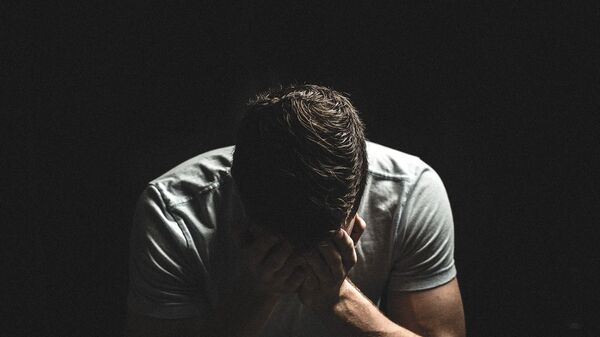Research carried out by Cardiff and Bristol universities found that 2.6 million people in the UK have suffered from "COVID grief". Family and friends bereaved by coronavirus have experienced "greatly increased negative experiences" and showed higher grief and support needs compared with people suffering the loss of loved ones from other illnesses.
The COVID-19 Bereaved Families for Justice group, which has more than 2000 members, is now demanding government support and calling for funding to be made available to create helplines and counselling services to aid those who are facing exceptional challenges in the face of emotional adversity. We spoke with counsellor, Diana Parkinson, to ask what challenges are faced by families who have lost loved ones to COVID-19 and what more can be done to help them.
Sputnik: Is enough being done to help support families and individuals throughout this time?
Diana Parkinson: Well, no and it can't be because of the pandemic. We’re not able to accompany the sick and dying to hospital appointments or to visit those in hospital wards. To hold the hand of a dying loved one, we're denied the opportunity for a last goodbye. So it's not dissimilar to solitary confinement, especially for the elderly, and those living alone, we're living in a very unnatural way. You know, there have been comparisons - I think politicians have made - between, you know, going through World War Two, and how we all got through that. But that was because people had human contact, people comforted and helped one another, shared a cup of tea together, these are things that we are not able to do now.
Sputnik: What challenges are faced by families who have perhaps lost family to COVID?
Diana Parkinson: Huge challenges, and there's no healing process. And hopefully, we can find a way to do that once we are able to function in a normal way again, probably after we've all had vaccines, because it's like funerals happening from a distance. Funeral services, I don't know if you've seen any, but they're conducted for very few attendees, all masked, hymns are listened to, no singing, no touching, comforting, holding one another in shared sorrow. It's bizarre - and I have attended a funeral that way. I've attended virtually rather than in person, because you can only have a few people at a funeral. So those unable to attend a minimal funeral in body attend via Zoom, Skype or FaceTime. Watching the funeral service from a static camera setup, where they see the coffin brought in and the tiny group of mourners walk in and take their place, masked, silent and distanced.
So there's no gathering together of friends and family for the sharing of food and drinks after the funeral. And this was a very important part of the grieving process. It's kind of when it started, you know, the funeral services have been and now here we are, we're gathered together. And we can share stories of the person who's departed, we can cry and laugh together, comfort one another, and share our grief. This is not possible now. After the funeral, it's very difficult to support the bereaved when we can't invite them into our home, or drop by to offer comfort. Grief is almost acknowledged and I do wonder how we will cope when we come out of this. Or wonder how we will manage the unexpressed and shared grief. I think it's going to be a pretty serious problem. Truly heart-breaking.
Sputnik: You mentioned some of them there. But what are the long-term effects we could perhaps see from individuals who have lost loved ones during the pandemic?
Diana Parkinson: Well, things such as trauma. You could have Post Traumatic Stress Disorder, for example, because the distance that's required. You know, that you can't be in hospital necessarily with the person, you can't hold their hand as they take their last breath or say goodbye. Sometimes you can do it sort of virtually. Again, this virtual thing - which is so different from physically being with someone - the whole thing about not having this physical contact, physical, personal acknowledgement of what you're feeling, everything is from a distance. So it's a bit like being, you know, a prisoner in solitary confinement. You know, we don't know what it will be like. And, you know, fortunately, we can help, there is therapy to help, but it won't make it better. We can just try to heal as much as we can. But it won't undo the terrible damage, the terrible sense of loss. And guilt as well - because we tend to feel guilty that we weren't there to hold someone's hand to be with them.




